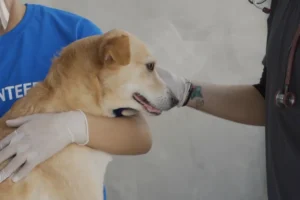Cats are lovable pets that bring joy to our lives, but they can also suffer from health issues like feline herpes. Have you ever wondered why cats get feline herpes and how it affects them? Let’s explore the reasons behind this common feline ailment.
What is Feline Herpes and How Does It Spread?
Feline herpes, also known as feline viral rhinotracheitis (FVR), is a common respiratory infection in cats caused by the feline herpesvirus. This virus can be easily transmitted among cats through close contact with infected animals. Common modes of transmission include sharing food and water bowls, grooming each other, or through sneezing and coughing.
To protect your feline friend from contracting feline herpes, it’s essential to keep them away from infected cats and ensure their living environment is clean and hygienic. Regular vaccinations can also help prevent the spread of the virus among cats.
For additional information on feline herpes and its transmission, consult reliable sources such as the American Association of Feline Practitioners (AAFP) website.
Signs and Symptoms of Feline Herpes in Cats
When a cat is infected with feline herpes, they may exhibit various signs and symptoms that can impact their overall health and wellbeing. Common symptoms include sneezing, nasal discharge, coughing, and watery or inflamed eyes. In severe cases, cats may develop ulcers on the eyes or cornea, leading to vision problems.
If you notice any of these signs in your feline companion, it’s crucial to consult with a veterinarian for an accurate diagnosis and appropriate treatment. Early detection and prompt medical care can help alleviate your cat’s discomfort and prevent the spread of the virus to other cats in your household.
Remember, by understanding the signs and symptoms of feline herpes, you can take proactive steps to ensure the health and happiness of your beloved pet.
Risk Factors for Feline Herpes in Cats
Feline herpes, also known as feline viral rhinotracheitis, is a common respiratory infection in cats caused by the feline herpesvirus. Cats can contract this virus through direct contact with an infected cat, contaminated objects, or even human hands that have come into contact with the virus. However, several risk factors can increase a cat’s susceptibility to feline herpes:
- Age: Kittens and senior cats are more vulnerable to feline herpes due to their weaker immune systems.
- Stress: High levels of stress, such as changes in environment, introduction of new pets, or loud noises, can weaken a cat’s immune system and make them more prone to infections like feline herpes.
- Living Conditions: Cats living in crowded or unsanitary environments, such as shelters or multi-cat households, are at a higher risk of contracting feline herpes due to increased exposure to the virus.
If you suspect your cat has feline herpes, consult your veterinarian for proper diagnosis and treatment options.
Treatment Options for Feline Herpes in Cats
When it comes to treating feline herpes in cats, there are various options available to help alleviate symptoms and manage the infection. Your veterinarian may recommend the following treatment options:
- Antiviral Medications: Prescription antiviral medications, such as famciclovir or L-lysine, can help reduce the severity and duration of feline herpes outbreaks.
- Immune Support: Providing immune-boosting supplements or a balanced diet can help strengthen your cat’s immune system and reduce the frequency of feline herpes flare-ups.
- Home Remedies: Using humidifiers, steam therapy, or saline eye drops can help ease respiratory symptoms and eye irritation associated with feline herpes.
It’s important to follow your veterinarian’s recommendations and maintain a stress-free environment for your cat to help manage feline herpes effectively. For more information on feline herpes treatment, consult with your veterinarian or visit reputable sources like the American Association of Feline Practitioners.
Click here for detailed guidelines on feline virus testing and management provided by the American Association of Feline Practitioners.
Preventing Feline Herpes in Cats
Feline herpes is a common viral infection among cats that can be easily prevented with a few key strategies. Vaccination is one of the most effective ways to protect your feline friend from contracting this virus. By keeping your cat up to date on their vaccinations, you can significantly reduce their risk of developing feline herpes.
Maintaining proper hygiene is crucial in preventing the spread of feline herpes. Regularly clean your cat’s food and water dishes, litter box, and bedding to minimize the chances of them coming into contact with the virus. Additionally, washing your hands after handling an infected cat can help prevent the spread of the virus to other feline companions.
Stress management techniques are also important in preventing feline herpes. Cats are more susceptible to infections when they are stressed, so creating a calm and enriching environment for your cat can help boost their immune system and reduce their risk of contracting the virus. Providing plenty of toys, scratching posts, and hiding spots can help reduce stress and keep your cat healthy and happy.
Complications of Feline Herpes in Cats
While feline herpes may seem like a minor infection, it can lead to serious complications if left untreated. One common complication is keratitis, an inflammation of the cornea that can cause eye ulcers and vision problems in cats. If you notice any changes in your cat’s eyes, such as excessive tearing or squinting, it’s important to seek veterinary care immediately.
Another potential complication of feline herpes is respiratory issues. Infected cats may experience symptoms such as sneezing, coughing, and nasal discharge. In severe cases, feline herpes can lead to pneumonia, which can be life-threatening if not treated promptly by a veterinarian.
Overall, the key to managing complications of feline herpes in cats is early detection and prompt veterinary care. Regular check-ups with your veterinarian can help identify any issues early on and ensure that your cat receives the appropriate treatment to keep them healthy and happy. Don’t hesitate to seek veterinary care if you notice any concerning symptoms in your feline friend.
Interesting Facts About Feline Herpes
Did you know that feline herpes, also known as feline viral rhinotracheitis, is highly contagious among cats? This respiratory infection is caused by the feline herpesvirus-1 and can spread through direct contact with an infected cat’s saliva, nasal discharge, or eye discharge.
Feline herpes can remain dormant: Once a cat is infected with the herpesvirus, it can remain in the cat’s system for life, periodically causing flare-ups of symptoms during times of stress or illness.
Kittens are especially vulnerable: Young kittens are more susceptible to feline herpes due to their developing immune systems. It’s important to monitor kittens closely for any signs of illness and consult with a veterinarian if symptoms arise.
Symptoms can vary: Cats infected with feline herpes may experience sneezing, nasal discharge, eye ulcers, and lethargy. In severe cases, feline herpes can lead to more serious respiratory issues.
Certain breeds may be more prone: While feline herpes can affect any cat, certain breeds such as Persians and Siamese may be more predisposed to developing the infection.
Stress can trigger outbreaks: Stress and environmental changes can weaken a cat’s immune system, leading to increased susceptibility to feline herpes outbreaks. Providing a calm and consistent environment for your cat can help reduce the frequency of flare-ups.
For more information on feline herpes and how to manage the condition, you can visit the American Association of Feline Practitioners website at www.catvets.com for valuable resources and guidance.
Alex, a passionate animal lover, has experience in training and understanding animal behavior. As a proud pet parent to two dogs and three cats, he founded AnimalReport.net to share insights from animal experts and expand his knowledge of the animal kingdom.




